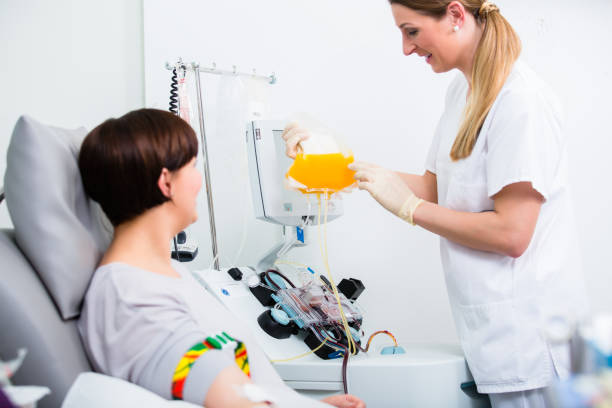Understanding Plasma Donation
Plasma donation is a vital medical process that plays a crucial role in treating various health conditions. Plasma, the liquid component of blood, carries essential proteins, hormones, and nutrients throughout the body. It is used to create therapies for patients with immune deficiencies, clotting disorders, and other serious illnesses. Understanding the eligibility requirements for plasma donation is essential to ensure the safety of both donors and recipients.
General Eligibility Criteria
To donate plasma, potential donors must meet specific criteria set by health organizations and plasma donation centers. These criteria are designed to protect the health of the donor and ensure the quality and safety of the plasma collected. The general eligibility requirements include factors such as age, weight, and health status.
Age and Weight Requirements
Most plasma donation centers require donors to be at least 18 years old. Some centers may allow donations from 16 or 17-year-olds with parental consent. The upper age limit varies but typically ranges from 60 to 69 years old, depending on the health of the donor. Additionally, donors must weigh at least 110 pounds (50 kilograms) to ensure they have enough blood volume to safely donate plasma.
Health and Medical History
Donors must be in good general health and free from any conditions that could pose a risk to themselves or the recipients of their plasma. This includes having no recent infections, not taking certain medications, and not having chronic illnesses that could affect blood safety. A thorough medical history screening is conducted to identify any potential issues.
Screening Process
Before donating plasma, potential donors undergo a comprehensive screening process. This typically includes a health questionnaire, a physical examination, and blood tests. The health questionnaire covers medical history, lifestyle, and recent travel to areas with prevalent infectious diseases. The physical examination checks vital signs such as blood pressure, pulse, and temperature, while blood tests screen for infections and other conditions.
Lifestyle and Behavioral Factors
Certain lifestyle and behavioral factors can impact eligibility to donate plasma. Donors must not have engaged in high-risk behaviors such as intravenous drug use, unprotected sex with multiple partners, or recent tattoos or piercings. These activities increase the risk of bloodborne infections, which could compromise the safety of the plasma.
Travel and Residency Restrictions
Travel to certain countries or regions with high incidences of infectious diseases can temporarily or permanently disqualify individuals from donating plasma. Common restrictions apply to areas affected by malaria, Zika virus, or Creutzfeldt-Jakob disease (mad cow disease). Residency in or travel to these regions within specific timeframes may result in deferral.
Chronic Conditions and Medications
Certain chronic conditions and medications can affect eligibility to donate plasma. Conditions such as diabetes, heart disease, and autoimmune disorders may disqualify potential donors, depending on their severity and control. Medications that affect blood clotting, immune function, or overall health may also lead to deferral.
Pregnancy and Breastfeeding
Women who are pregnant or breastfeeding are generally not eligible to donate plasma. Pregnancy and breastfeeding can alter blood composition and immune function, posing potential risks to both the donor and recipient. Women may be eligible to donate after a specified period postpartum, typically six months.
Recent Illnesses and Vaccinations
Recent illnesses, such as colds, flu, or infections, can temporarily disqualify individuals from donating plasma. Donors must be symptom-free and fully recovered before they can donate. Additionally, certain vaccinations may require a deferral period, ranging from a few days to several weeks, depending on the vaccine type.
Previous Donations and Frequency
The frequency of plasma donations is regulated to ensure donor safety. Donors can typically donate plasma up to twice a week, with at least 48 hours between donations. Frequent donations require careful monitoring of the donor's health and protein levels to prevent adverse effects.
Iron and Protein Levels
Maintaining adequate iron and protein levels is crucial for plasma donors. Low iron levels (anemia) can disqualify potential donors, as can low protein levels. Donors are encouraged to consume a balanced diet rich in iron and protein to support their donation eligibility and overall health.
Special Considerations for Plasma Donors
Plasma donation centers may have additional requirements or considerations based on their specific protocols and the needs of their recipients. For example, donors with certain blood types may be in higher demand, or those with a history of specific vaccinations or infections may be needed for specialized plasma products.
Donor Deferral and Requalification
If a potential donor is deferred due to temporary factors such as illness, recent travel, or low iron levels, they may requalify after addressing the issue and meeting the required deferral period. Donation centers provide guidelines and support to help individuals understand the requalification process and maintain eligibility.
Plasma Donation and Public Health
Plasma donation plays a critical role in public health by providing essential treatments for patients with serious health conditions. Donors contribute to the development of life-saving therapies, including immunoglobulins, clotting factors, and albumin. Ensuring donor eligibility and safety is paramount to maintaining a reliable and safe plasma supply.
The Importance of Regular Donations
Regular plasma donations are vital to meet the ongoing demand for plasma-derived therapies. Donors are encouraged to donate as frequently as allowed, provided they maintain their health and eligibility. Plasma donation centers often provide incentives and support to encourage regular donations and recognize the contributions of dedicated donors.
Conclusion
Eligibility to donate plasma involves meeting specific criteria designed to protect the health of both donors and recipients. By understanding these requirements and maintaining good health, potential donors can contribute to the life-saving process of plasma donation. Regular donations are essential to ensure a steady supply of plasma for medical treatments, highlighting the importance of donor eligibility and commitment to public health.



